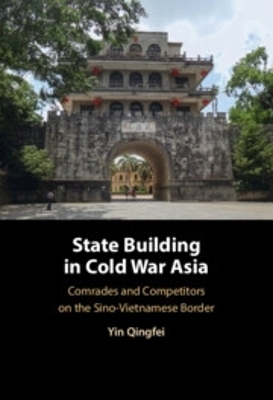
State Building in Cold War Asia
Comrades and Competitors on the Sino-Vietnamese Border
Seiten
2024
Cambridge University Press (Verlag)
978-1-009-42664-0 (ISBN)
Cambridge University Press (Verlag)
978-1-009-42664-0 (ISBN)
- Noch nicht erschienen
- Versandkostenfrei
- Auch auf Rechnung
- Artikel merken
Departing from conventional studies of border confrontation and weaving together international, national, and transnational-local histories, Yin presents a new approach to Sino-Vietnamese relations during the Cold War, centering on the revolutionary states' competitive and collaborative state building on the borderlands and local responses to it.
Departing from conventional studies of border hostility in inter-Asian relations, Yin Qingfei explores how two revolutionary states – China and Vietnam – each pursued policies that echoed the other and collaborated in extending their authority to the borderlands from 1949 to 1975. Making use of central and local archival sources in both Chinese and Vietnamese, she reveals how the people living on the border responded to such unprecedentedly aggressive state building and especially how they appropriated the language of socialist brotherhood to negotiate with authorities. During the continuous Indochina wars, state expansion thus did not unfold on these postcolonial borderlands in a coherent or linear manner. Weaving together international, national, and transnational-local histories, this deeply researched and original study presents a new approach to the highly volatile Sino-Vietnamese relations during the Cold War, centering on the two modernising revolutionary powers' competitive and collaborative state building on the borderlands and local responses to it.
Departing from conventional studies of border hostility in inter-Asian relations, Yin Qingfei explores how two revolutionary states – China and Vietnam – each pursued policies that echoed the other and collaborated in extending their authority to the borderlands from 1949 to 1975. Making use of central and local archival sources in both Chinese and Vietnamese, she reveals how the people living on the border responded to such unprecedentedly aggressive state building and especially how they appropriated the language of socialist brotherhood to negotiate with authorities. During the continuous Indochina wars, state expansion thus did not unfold on these postcolonial borderlands in a coherent or linear manner. Weaving together international, national, and transnational-local histories, this deeply researched and original study presents a new approach to the highly volatile Sino-Vietnamese relations during the Cold War, centering on the two modernising revolutionary powers' competitive and collaborative state building on the borderlands and local responses to it.
Yin Qingfei is Assistant Professor of International History (China and the World) at the London School of Economics and Political Science.
Introduction: internationalism, nationalism, and transnational localism at the Sino-Vietnamese border; 1. Asymmetric state building (1949–1954); 2. Joint state building (1954–1957); 3. Negotiated state building (1958–1964); 4. Thwarted state building on the sea (1954–1964); 5. Reversed state building (1965–1975); Conclusion: Cold War Asia: a borderlands perspective; Bibliography.
| Erscheint lt. Verlag | 21.11.2024 |
|---|---|
| Zusatzinfo | Worked examples or Exercises |
| Verlagsort | Cambridge |
| Sprache | englisch |
| Themenwelt | Geschichte ► Allgemeine Geschichte ► Zeitgeschichte |
| Geisteswissenschaften ► Geschichte ► Regional- / Ländergeschichte | |
| Sozialwissenschaften ► Politik / Verwaltung ► Staat / Verwaltung | |
| ISBN-10 | 1-009-42664-8 / 1009426648 |
| ISBN-13 | 978-1-009-42664-0 / 9781009426640 |
| Zustand | Neuware |
| Informationen gemäß Produktsicherheitsverordnung (GPSR) | |
| Haben Sie eine Frage zum Produkt? |
Mehr entdecken
aus dem Bereich
aus dem Bereich
Gewalt, Umwelt, Identität, Methode
Buch | Softcover (2024)
Spector Books OHG (Verlag)
CHF 49,95


